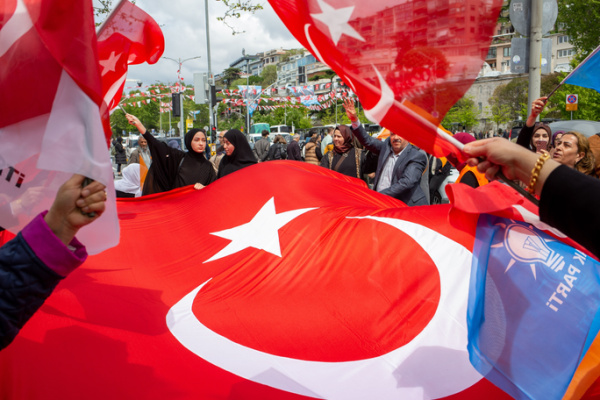The “Shadow” Foreign Minister Steps into the Light: Hakan Fidan Enters the Cabinet
By Reuben Silverman
June 14, 2023
During more than twelve years as director of the National Intelligence Organization (MİT), Hakan Fidan played a central role in expanding Turkey’s regional influence. From the Syrian Civil War to the government’s global crackdown on the Fethullah Gülen movement, he was involved in shaping and implementing major policies. His appointment as foreign minister on June 4, following President Recep Tayyip Erdoğan’s reelection, is meant to signal a return to more unified, consistent diplomacy following a decade of uncertainty. The appointment of Fidan may also be part of an effort to present a “moderate” image to international institutions and not least to the United States.

The Tale of the Split that Brought Down Turkey
By Svante E. Cornell
September 6, 2016
The July 15 coup has devastated the Turkish state, left institutions hollow, and inflicted a lasting trauma on the population. It is now increasingly clear that the state in Turkey was essentially torn to shreds by a ferocious battle between two Islamic sects led by uncompromising, larger than life personalities: Recep Tayyip Erdogan and Fethullah Gülen. To fully grasp the implications of the coup requires revisiting the history of the relationship.
Stoking the Fires: Crises, Conspiracies and Miscalculations
By Gareth H. Jenkins
December 21st, 2015, The Turkey Analyst
In theory, the restoration of the parliamentary majority of the Justice and Development Party (AKP) in the general election of November 1 should have been an opportunity to address Turkey’s many pressing problems, not least its international isolation and the cleavages in Turkish society. Instead, in the weeks since its election victory, the AKP has continued with the policies that it was pursuing before, not only exacerbating existing crises but creating new ones.
Bayramoğlu: a partisan president
Ali Bayramoğlu in Yeni Şafak writes that political rumor before AKP’s congress had it that Davutoğlu would like to have included liberal names who have been critical of recent AKP policies, such as Ali Babacan, Bülent Arınç, Mehmet Şimşek, Sadullah Ergin and Beşir Atalay, in the party leadership. It was also claimed that Erdoğan was distanced to these names, and that he preferred others, close to him, and whose names are not associated with the fraternity [of Fethullah Gülen.] Insofar as Davutoğlu failed to pay attention to intra-party balances, he provoked the reaction of names like Binali Yıldırım, while many turned to Erdoğan, asking him to take charge of the situation. When Davutoğlu accepted these conditions, nearly sixty percent of the names in his list were replaced, and the final decider in the process was the president. Three conclusions can be drawn from this story. First, Davutoğlu did not succeed in his attempt to enlarge his sphere of autonomy. Second, insofar as the list that Davutoğlu presented led to his isolation within the party, it invited Erdoğan to enter the game. Third, this congress has shown that Erdoğan, alongside that he as president is taking an active role within the field of the executive, is also de facto imposing the model of “partisan presidency” by very openly assuming the function as the final decider of the internal affairs of a political party.




